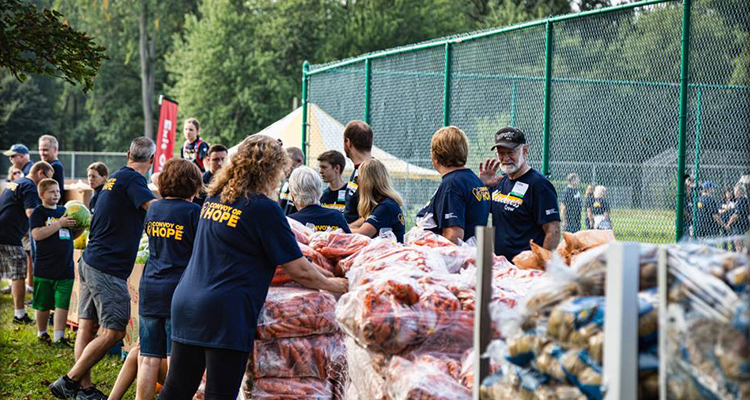Michigan church responds to water crisis

Nearly five years after the Flint, Michigan, water crisis began, the Church of the Nazarene is still responding.
In 2014, the city switched its drinking water supply from Detroit’s water system to the Flint River in a cost-saving measure.
Inadequate treatment and testing of the water resulted in a series of water quality and health issues for Flint residents, starting with skin rashes and hair loss. Studies revealed that lead in the water caused the local children’s blood lead levels to as much as triple.
The dirty water also caused an outbreak of Legionnaires’ disease — a severe form of pneumonia — that killed at least 12 and left at least 90 people seriously ill between June 2014 and October 2015. This outbreak was the third largest episode of Legionnaires’ disease in U.S. history.
Flint Central Church of the Nazarene’s first act was to encourage its members to bring in bottled water or give offerings to purchase water filters and bottled water during the worst parts of the crisis.
“Initially, water was delivered to families, and later, water was made available at the church,” said Rob Prince, Central Church lead pastor.
When Prince announced the outreach initiatives, church member Jim Burke informed leaders of his connection with the Convoy of Hope — a Springfield, Missouri, based nonprofit. Because of this connection, Convoy of Hope brought dozens of semi-truck loads of bottled water to Flint. The bottles were distributed by a local partner church, Joy Tabernacle.
Another connection was made through Prince’s former staff member, who knew someone at a water filtration company. The company offered Central Church a free water-filtration system for the entire church building, and the church donated it to Joy Tabernacle, whose new members didn’t want to be baptized in the contaminated water.
“We are so thankful,” said Robert McCathern, Joy Tabernacle lead pastor. “Our people can get baptized now!”
Since then, the Convoy of Hope has partnered with these churches and other organizations to provide a yearly community event in Flint. Todd Womack, Flint Central’s associate pastor, has served as the community event coordinator. The initiative offers food and water distribution, free haircuts, family portraits, tennis shoes, health screenings, a job fair, bounce houses, hot meals, and a prayer tent. Several hundred volunteers and more than 2,000 community members in need participate in the event each year.
Flint Central partnered with other organizations in the community, such as Dillon Elementary School, the closest elementary school to the church. During the height of the water crisis, Flint Central Church delivered pallets of water to the school since many of their families live in highly impacted areas.
The church continues to minister in other ways, providing 60-75 bags of food each Friday to students who may not eat over the weekend. The church hosts after-school activities and tutoring three days per week as well as a summer day camp with the Boys and Girls Club.
Hundreds of volunteers work through Flint Eastside Mission and Forge Flint, two Nazarene Compassionate Ministry centers, to improve the area by boarding up vacant houses, cleaning vacant lots, and working at the community food bank.
Flint has since switched back to the Detroit water supply, and the pipes within the city’s water infrastructure are being replaced to stop more lead from leaching into the water supply. In December, Flint Mayor Karen Weaver announced that the replacement of the pipes was ahead of schedule and that all the pipes will be replaced by the end of 2019.
